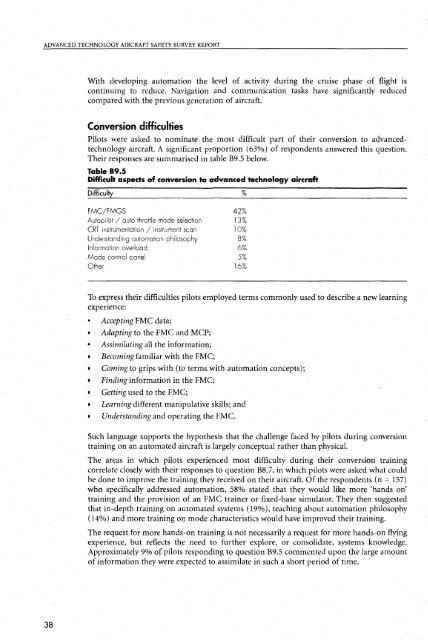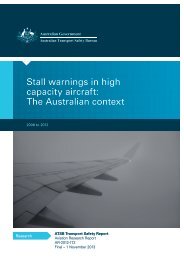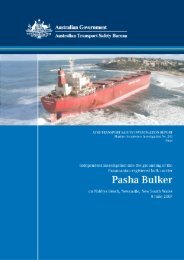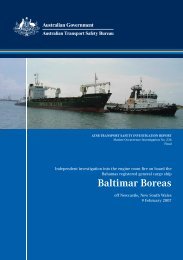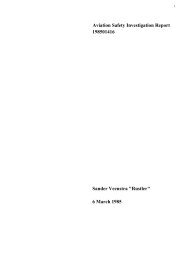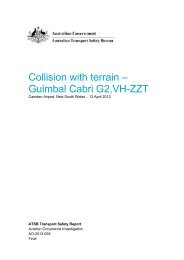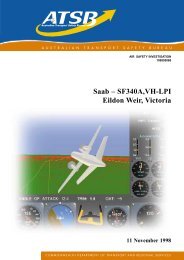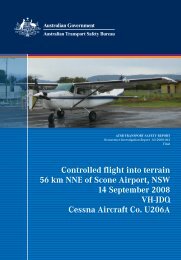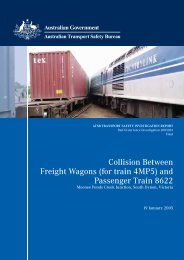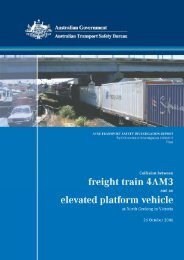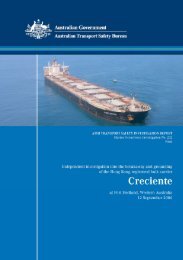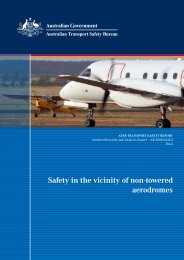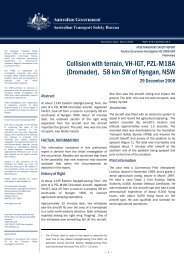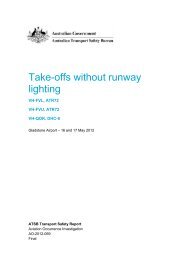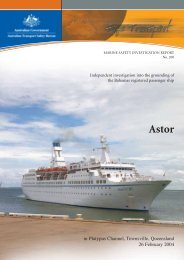Advanced Technology Aircraft Safety Survey Report - Australian ...
Advanced Technology Aircraft Safety Survey Report - Australian ...
Advanced Technology Aircraft Safety Survey Report - Australian ...
Create successful ePaper yourself
Turn your PDF publications into a flip-book with our unique Google optimized e-Paper software.
ADVANCED TECHNOLOGY AIRCRAFT SAFETY SURVEY REPORT<br />
38<br />
With developing automation the level of activity during the cruise phase of flight is<br />
continuing to reduce. Navigation and communication tasks have significantly reduced<br />
compared with the previous generation of aircraft.<br />
Conversion difficulties<br />
Pilots were asked to nominate the most difficult part of their conversion to advanced-<br />
technology aircraft. A significant proportion (63%) of respondents answered this question.<br />
Their responses are summarised in table B9.5 below,<br />
Table 89.5<br />
Difficult aspects of conversion to advanced technology aircraft<br />
Difficulty %<br />
FMC/FMGS 42%<br />
Autopilot / auto throttle mode selection 13%<br />
CRT instrumentation / instrument scan 10%<br />
Understanding automation philosophy 8%<br />
Information overload 6%<br />
Mode control panel 5%<br />
Other 16%<br />
To express their difficulties pilots employed terms commonly used to describe a new learning<br />
experience:<br />
Accepting FMC data;<br />
Adapting to the FMC and MCP;<br />
Assimilating all the information;<br />
Becoming familiar with the FMC;<br />
Coming to grips with (to terms with automation concepts);<br />
Finding information in the FMC;<br />
Getting used to the FMC;<br />
Learning different manipulative skills: and<br />
Understanding and operating the FMC.<br />
Such language supports the hypothesis that the challenge faced by pilots during conversion<br />
training on an automated aircraft is largely conceptual rather than physical.<br />
The areas in which pilots experienced most difficulty during their conversion training<br />
correlate closely with their responses to question B8.7, in which pilots were asked what could<br />
be done to improve the training they received on their aircraft. Of the respondents (n = 157)<br />
who specifically addressed automation, 58% stated that they would like more ‘hands on’<br />
training and the provision of an FMC trainer or fixed-base simulator. They then suggested<br />
that in-depth training on automated systems (19%), teaching about automation philosophy<br />
(14%) and more training on mode characteristics would have improved their training.<br />
The request for more hands-on training is not necessarily a request for more hands-on flying<br />
experience, but reflects the need to further explore, or consolidate, systems knowledge.<br />
Approximately 9% of pilots responding to question B9.5 commented upon the large amount<br />
of information they were expected to assimilate in such a short period of time.


